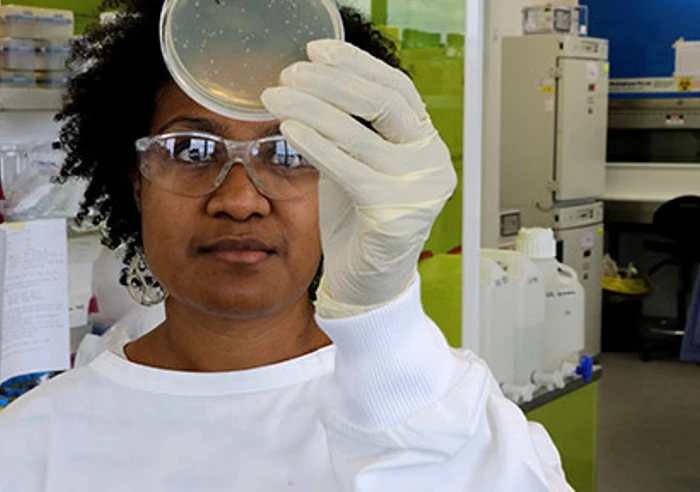



Infectious Diseases Systems Epidemiology
We use systems biology and epidemiological data to understand how the interplay of host, pathogen and environment drives patterns of infectious disease.
Group Heads
About this group
We use population-level systems biology and epidemiological data to explore how host, pathogen and environment drives infectious disease. We strive to understand pathogen transmission and biology, the evolution of drug resistance and immune escape, and susceptibility of the host to disease, and to develop high-resolution approaches for infectious disease surveillance.
Humans and pathogens exist in complex populations and environments, impacting disease transmission and risk, prevention, treatment and public health responses.
To characterise malaria parasites and their hosts, we combine genomics, immune (antibody) profiling and epidemiological data, using analytical approaches (bioinformatics, population genetics, biostatistics) to understand malaria biology and epidemiology.
Our work informs strategies for malaria control and elimination including stratification of control efforts, diagnostics, drugs and vaccines. Critically, we also develop genomic surveillance capacity in malaria endemic countries.
We work closely with a large multidisciplinary network of local and international collaborators including clinicians, field researchers and public health practitioners which ensures the translation of our research into more effective disease control strategies. We host researchers and other stakeholders from malaria endemic countries for advanced training in genomic technology and applications.
In addition to our malaria work, we are interested in emerging infectious diseases such as yaws, Buruli ulcer and COVID-19.
Current projects
View 1 moreInfectious diseases systems epidemiology (multiple projects)
The Infectious Diseases Systems Epidemiology Working Group is headed by Professor Alyssa Barry, who also has a laboratory at Deakin University’s Institute for Mental and Physical Health and Clinical Translation (IMPACT) in Geelong.
Antimalarial resistance in Plasmodium falciparum (PredictR)
The malaria parasite Plasmodium falciparum is becoming resistant to all available treatments against malaria. This is an ongoing threat to our efforts to control and eliminate malaria.
Developing a novel assessment tool for entering the malaria elimination phase in the Greater Mekong Subregion
Countries in the Greater Mekong subregion of Southeast Asia have committed to eliminating malaria by 2030, but validated assessment tools are still lacking.
Group contacts
Group members

Professor Alyssa Barry
Honorary Principal Research Fellow

Dulcie Lautu-Gumal

Katie Stanhope
PhD Candidate
Burnet Institute




